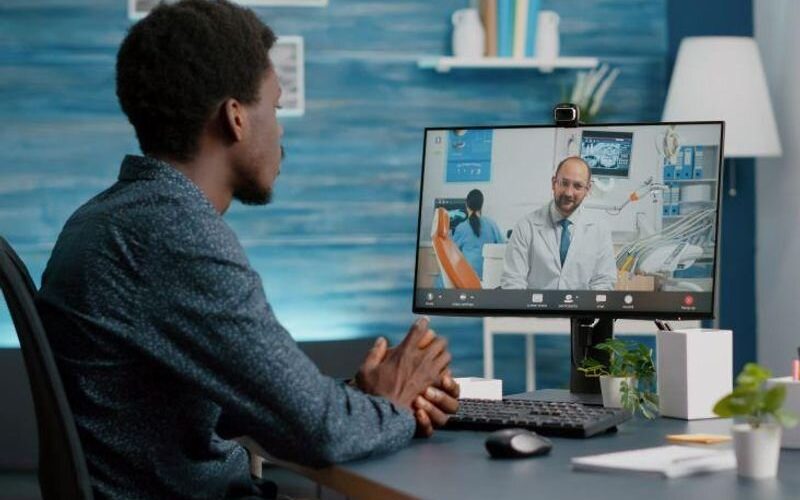Telehealth may increase use of specialty care for serious mental illness

Greater county-level use of telemental health visits is associated with modest increases in contact with outpatient specialty mental health care professionals and a greater likelihood of follow-up after hospitalization among Medicare beneficiaries with serious mental illness, according to a study recently published in JAMA Network Open.
Bill Wang, from Harvard Medical School in Boston, and colleagues assessed whether greater telemedicine use in a nonmetropolitan county is associated with quality measures for mental health care, including use of specialty care and medication adherence. The analysis included a sample of fee-for-service Medicare claims for 118,170 beneficiaries with schizophrenia and related psychotic disorders and/or bipolar I disorder in 2,916 nonmetropolitan counties from 2010 through 2018.
The researchers found that the fraction of counties that had high telemental health service use increased from 2 percent in 2010 to 17 percent in 2018. There were 1.08 telemental health service visits per patient in 2018 in the high telemental health counties. Patients in high-use counties were 1.2 percentage points (8.0 percent relative increase) more likely to have a minimum number of specialty mental health service visits, 13.7 percentage points (6.5 percent relative increase) more likely to have outpatient follow-up within seven days of a mental health hospitalization, and 0.47 percentage points (7.6 percent relative increase) more likely to be hospitalized in a year compared with no telemental health care in the county. There was no association between telemental health service use and changes in medication adherence.
Source: Read Full Article
